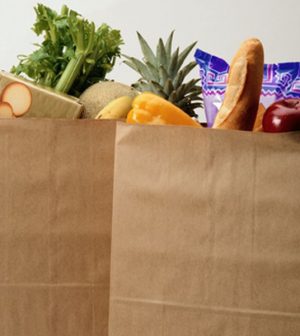- Could Your Grocery Store Meat Be Causing Recurring UTIs?
- Are You Making This Expensive Thermostat Error This Winter?
- Recognizing the Signs of Hypothyroidism
- 10 Strategies to Overcome Insomnia
- Could Artificial Sweeteners Be Aging the Brain Faster?
- Techniques for Soothing Your Nervous System
- Does the Water in Your House Smell Funny? Here’s Why
- Can a Daily Dose of Apple Cider Vinegar Actually Aid Weight Loss?
- 6 Health Beverages That Can Actually Spike Your Blood Sugar
- Treatment Options for Social Anxiety Disorder
An Expert’s Guide to Healthier Grocery Shopping

Living well starts at the grocery store: When you choose the right foods, it’s easy to cook and eat healthfully.
As a general rule, shop mostly along the perimeter of the store. This is where you’ll find fresh foods, such as the dairy, meat, fish and fresh produce that should be the foundation of your meals. Some of the most nutritious vegetable staples available year-round are sweet potatoes, broccoli, carrots and spinach. These are versatile choices that are not only great side dishes, but also part of many courses from a variety of cuisines.
Most people aren’t aware how much out-of-season produce adds to their food bill, so stick with what’s in season or go with frozen, especially when it comes to berries and exotic fruits such as mango. Seasonal foods also taste better, so consider buying them in bulk when available and freezing portions for future use.
Avoid most of the aisles and freezer cases jammed with prepared foods like frozen dinners. They cost more and are usually loaded with sugar and salt.
One inner aisle you should visit is the one with grains. That’s where you’ll find whole grains and whole grain flours to boost your fiber intake, and provide other nutrients typically missing from refined flour foods. Also stock up on dried peas and beans.
To make shopping efficient, keep a running grocery list and shop for staples once a week. This will save time and cut down on unwise impulse purchases. People who make frequent fast trips to the store or who shop without advance planning spend more and often buy high-fat, high-sugar items.
More information
The U.S. Centers for Disease Control and Prevention has more on healthier shopping and meal planning.
Source: HealthDay
Copyright © 2026 HealthDay. All rights reserved.










